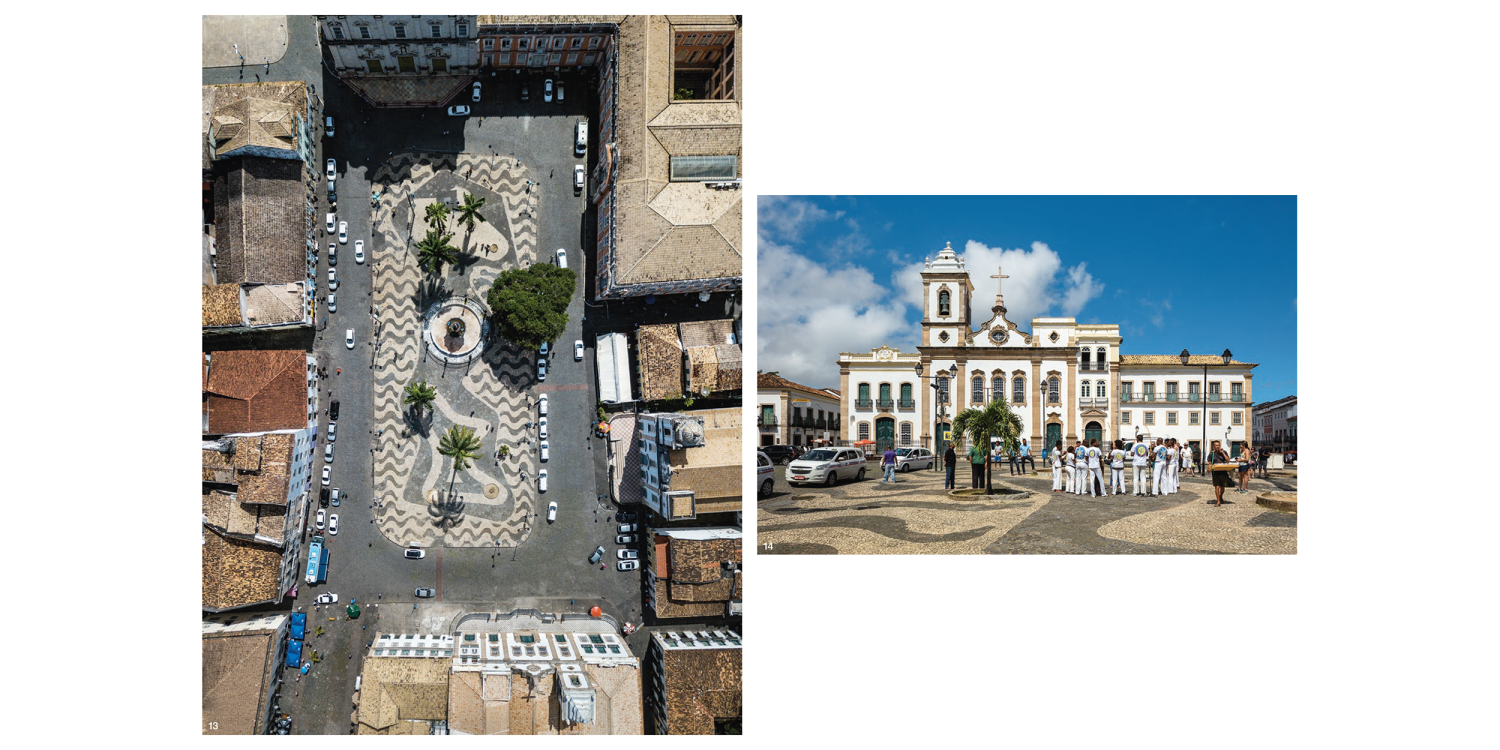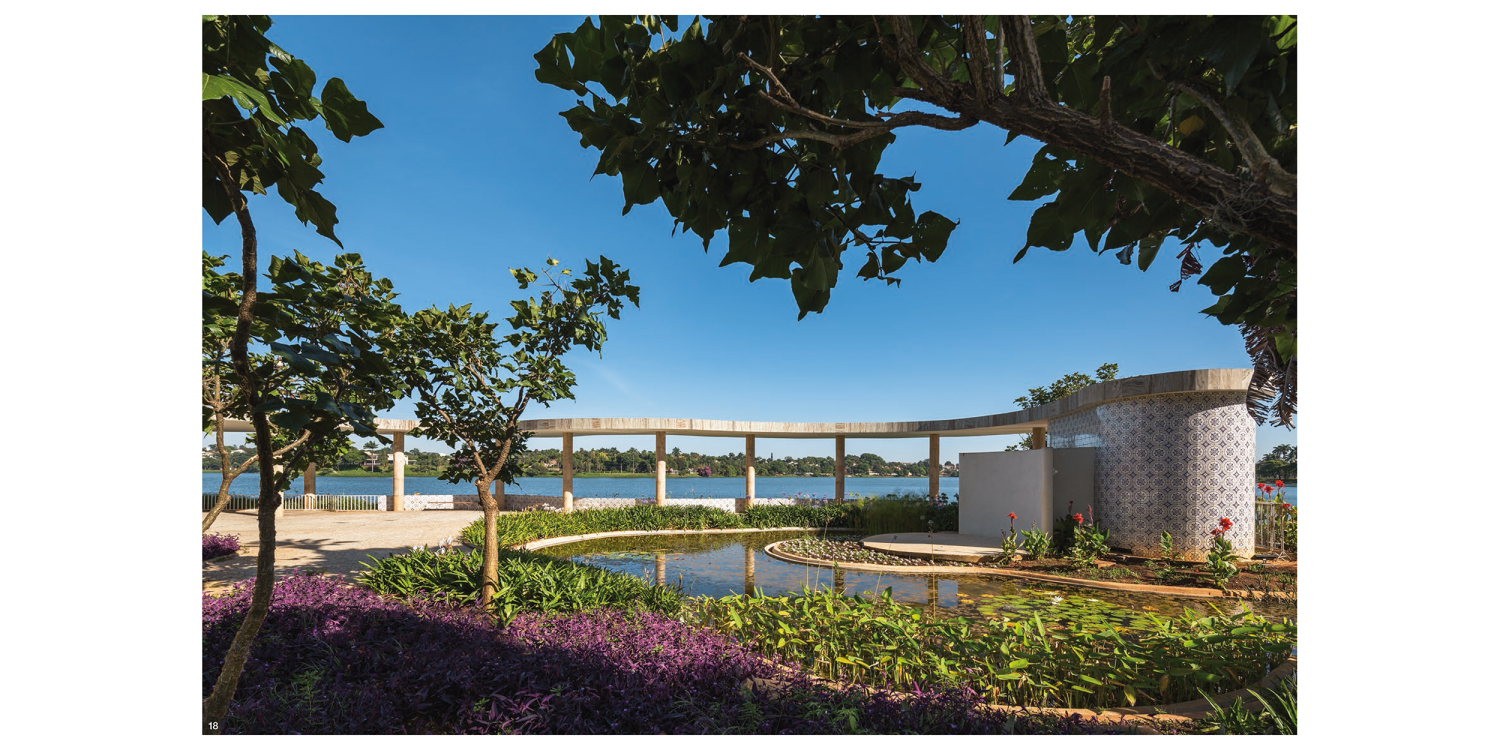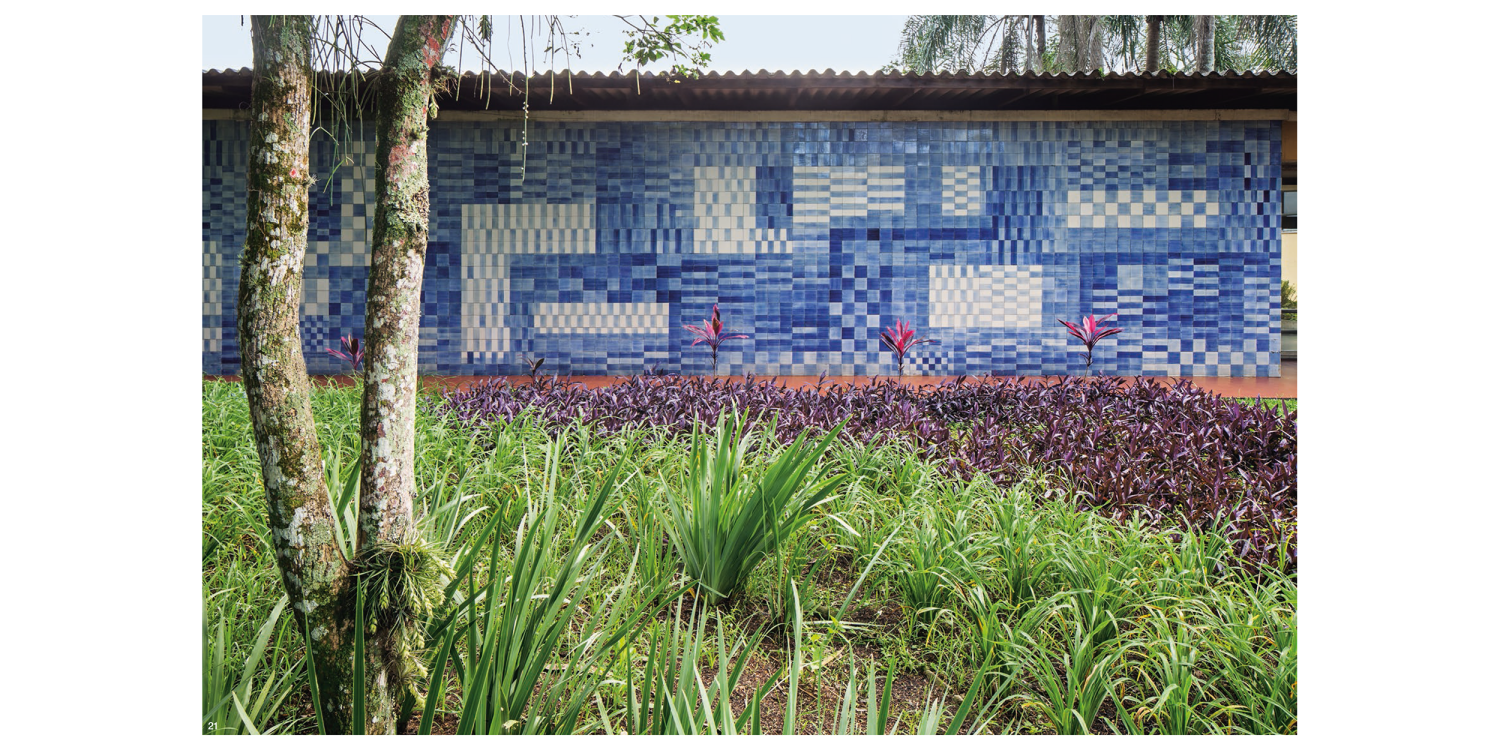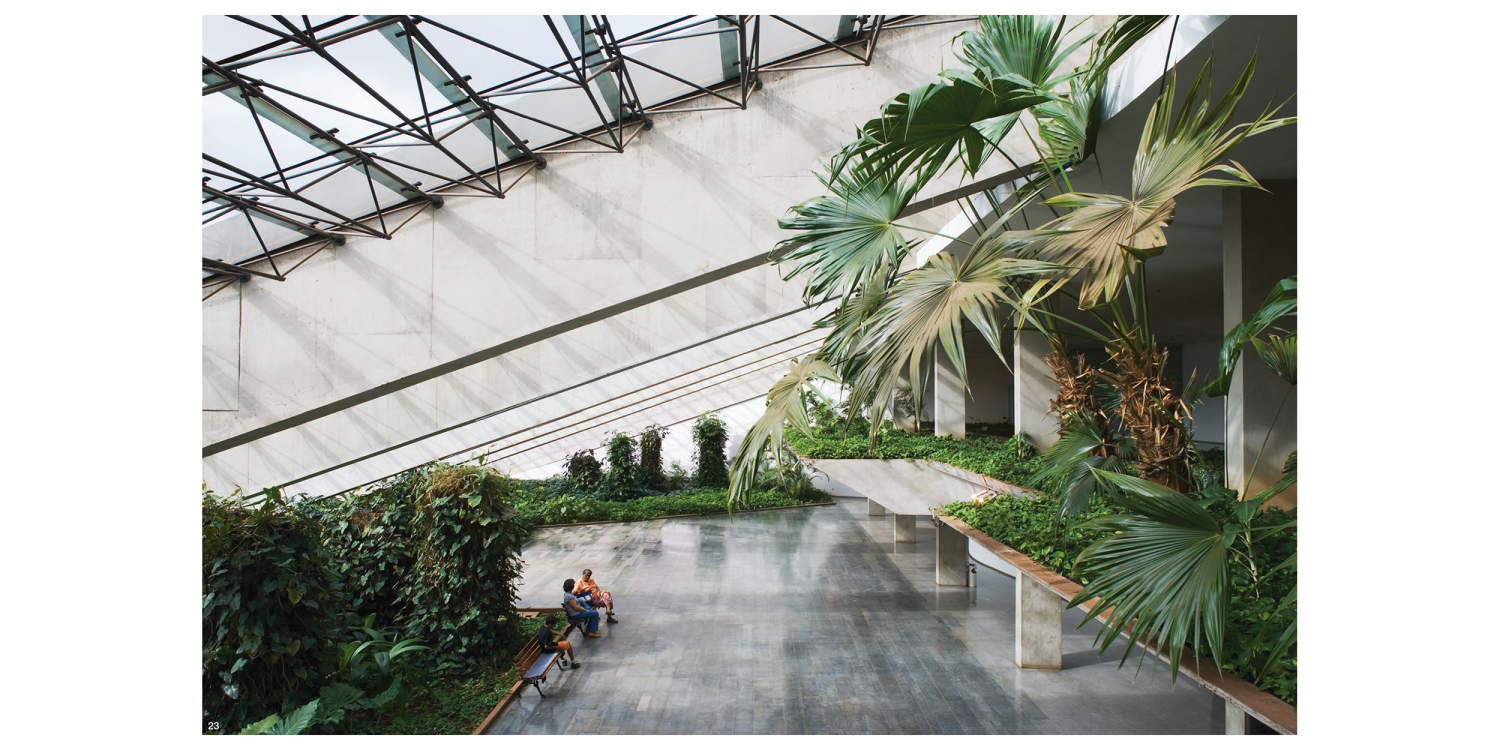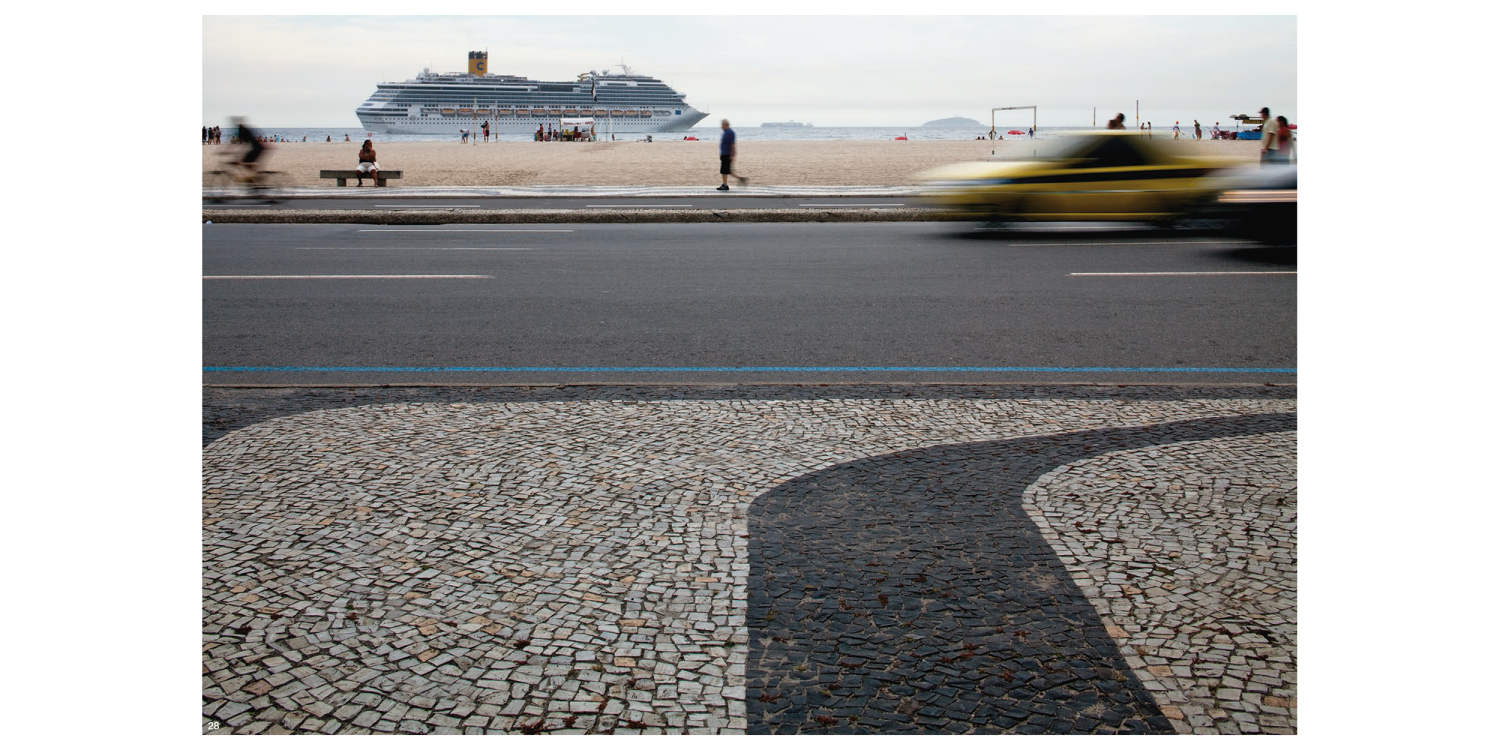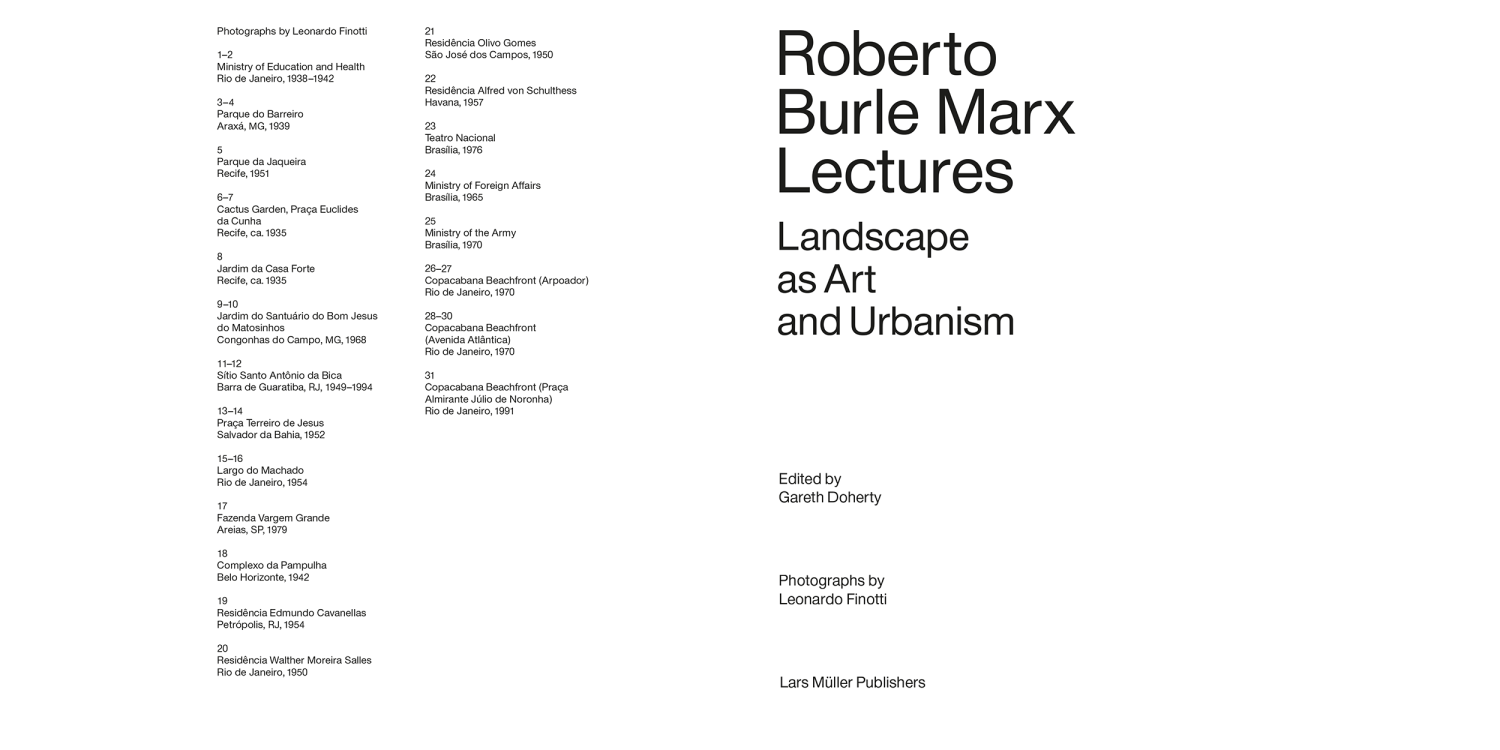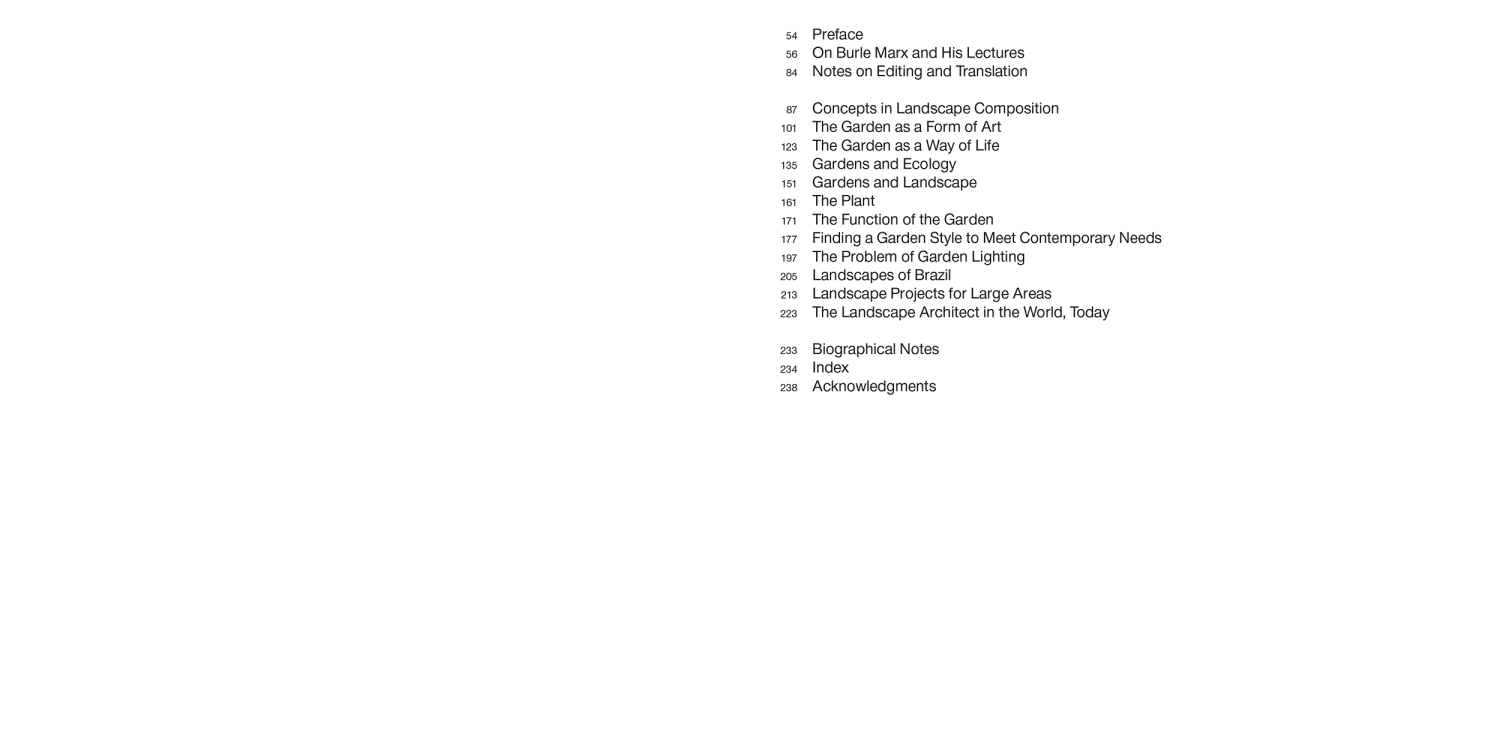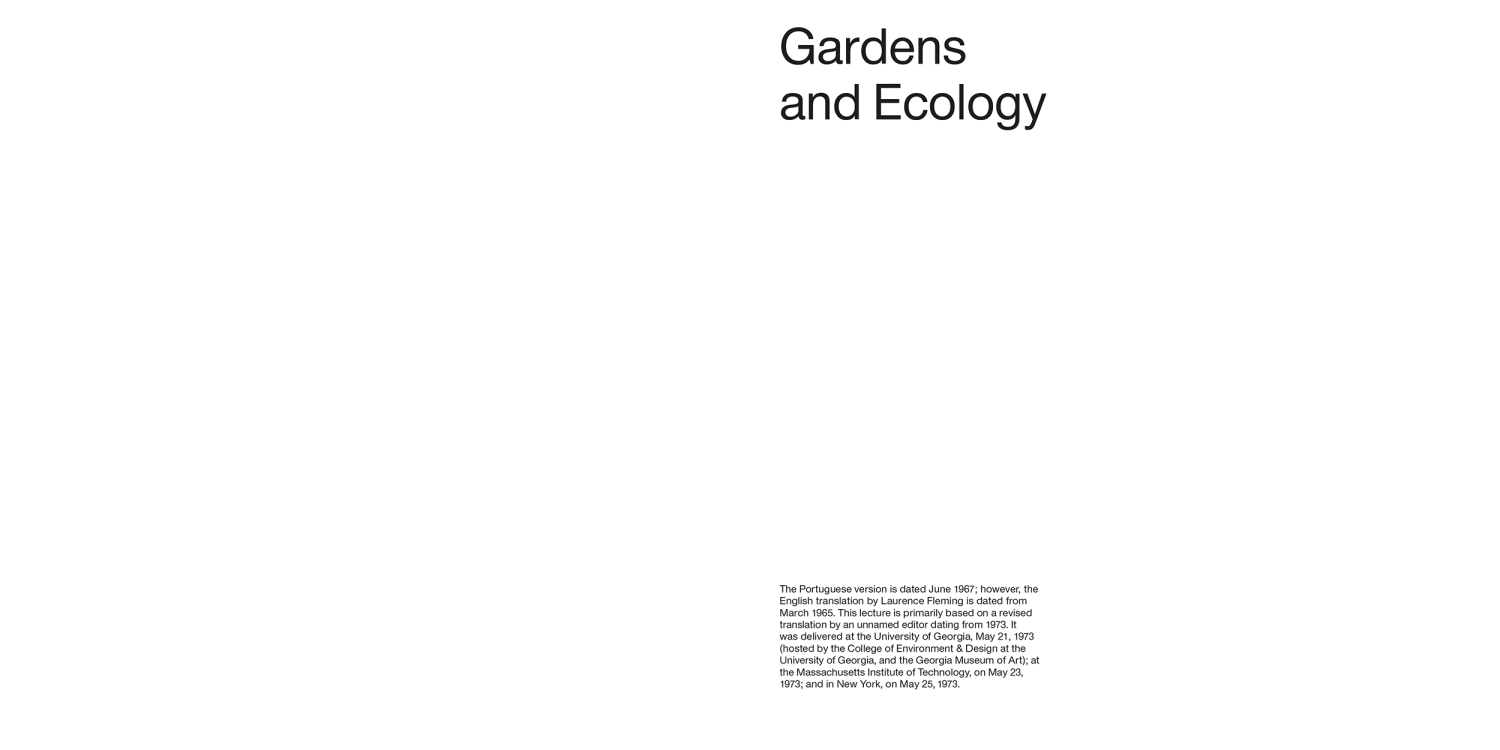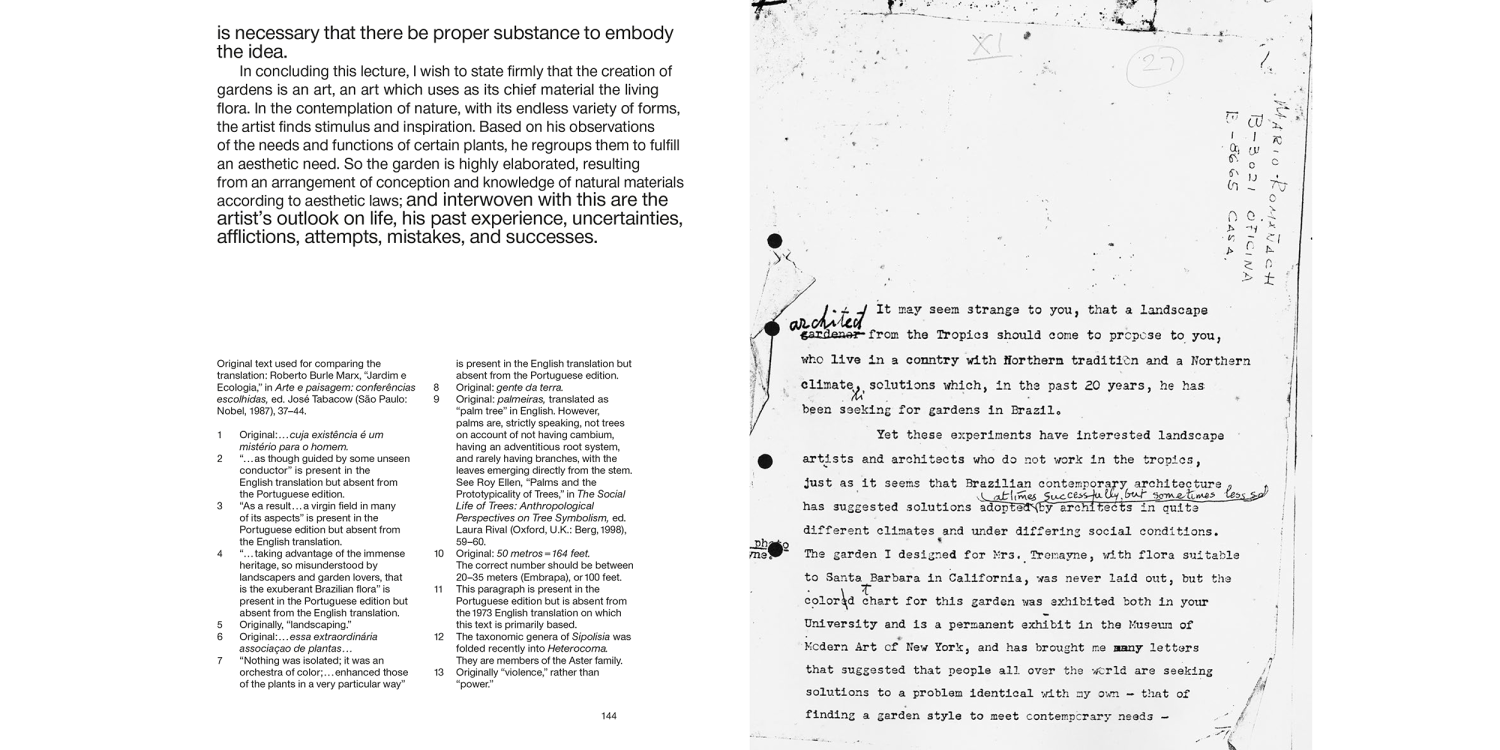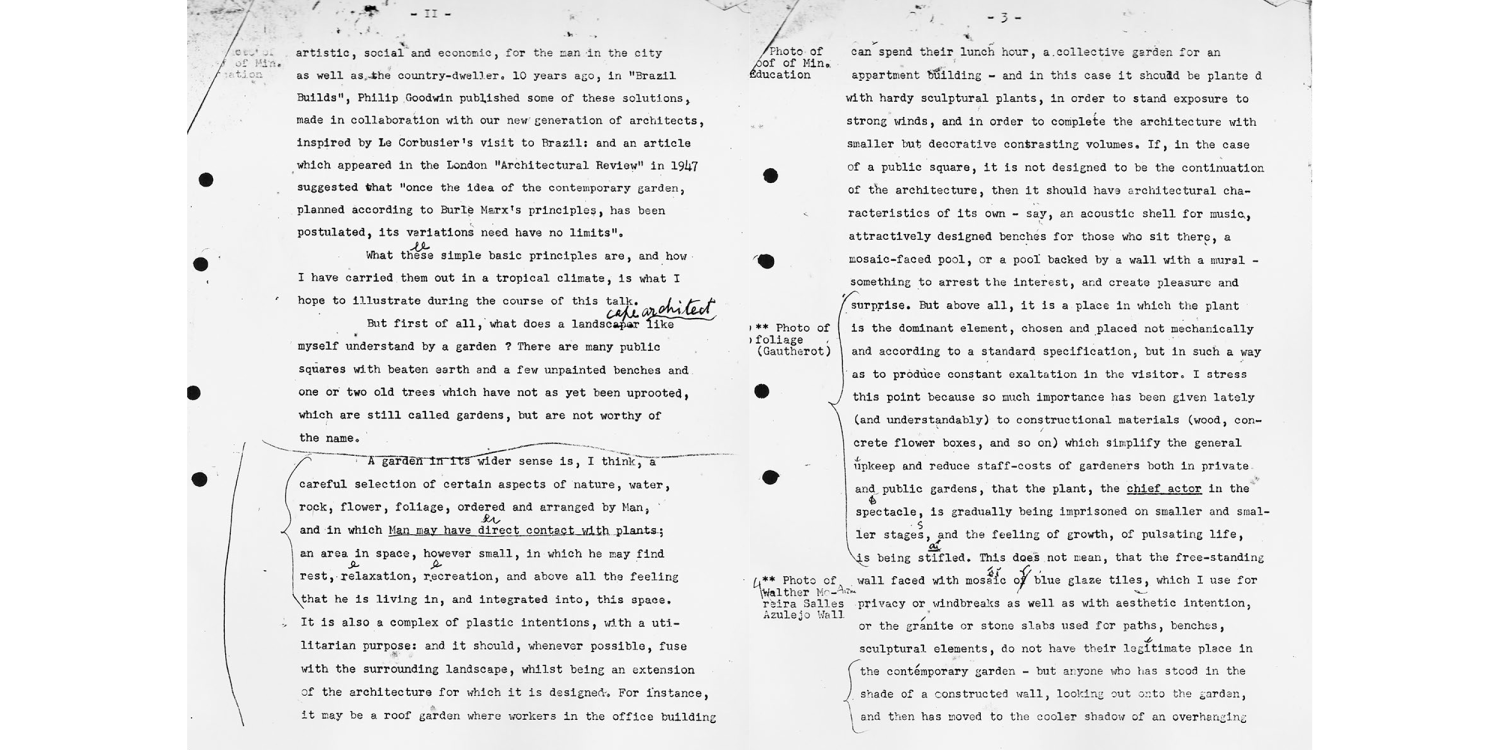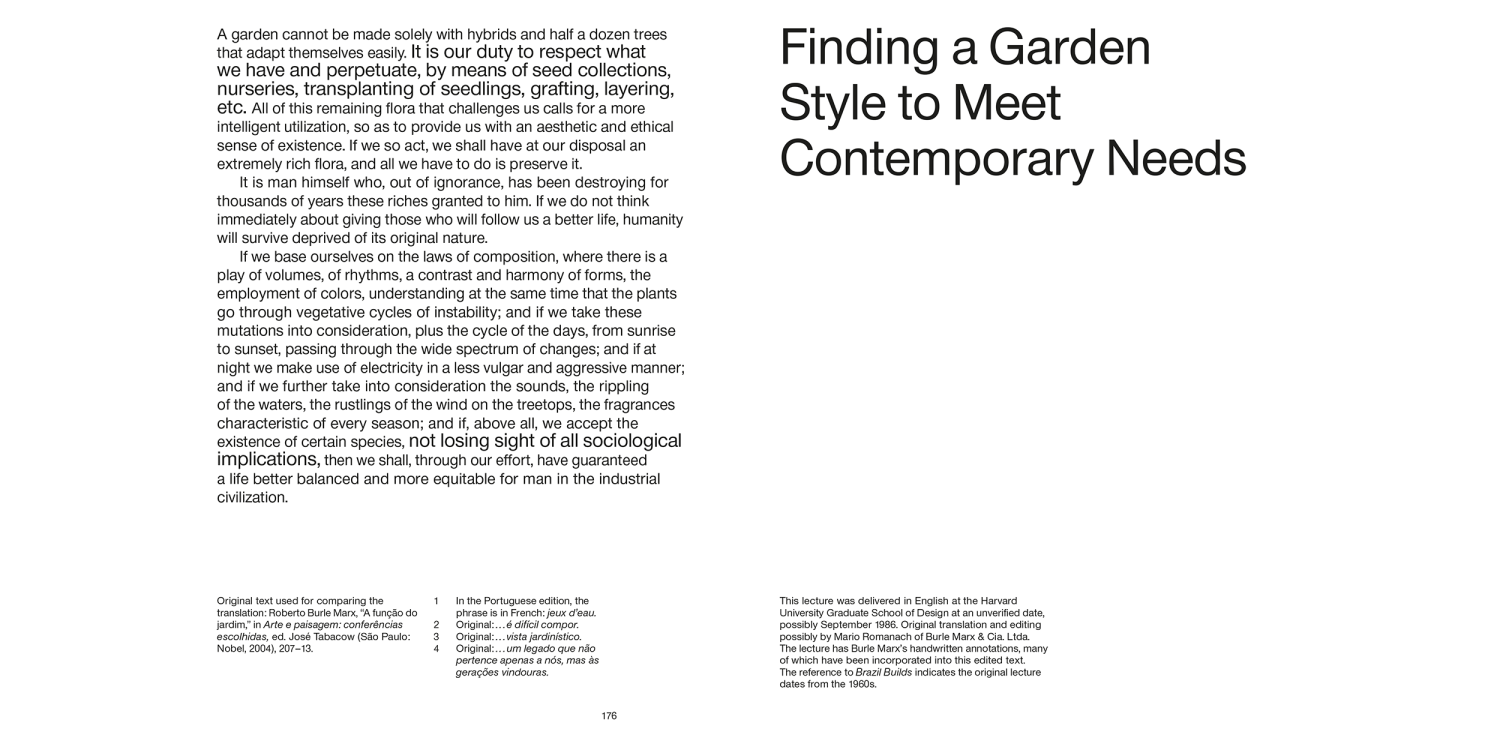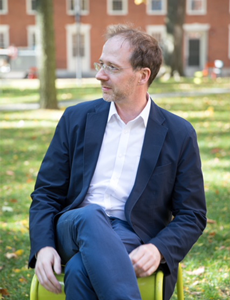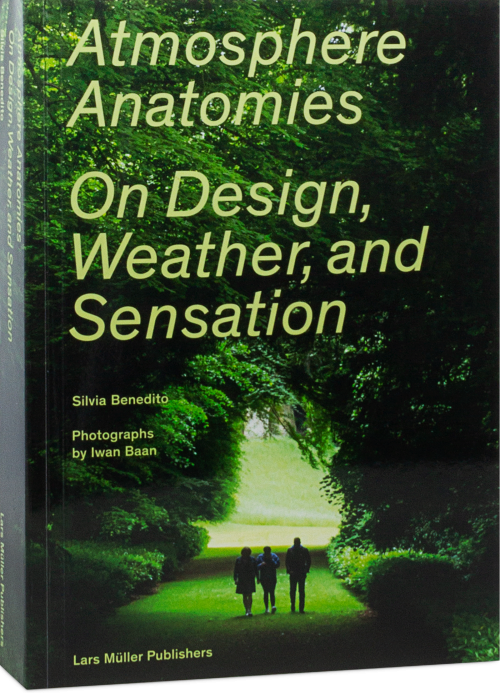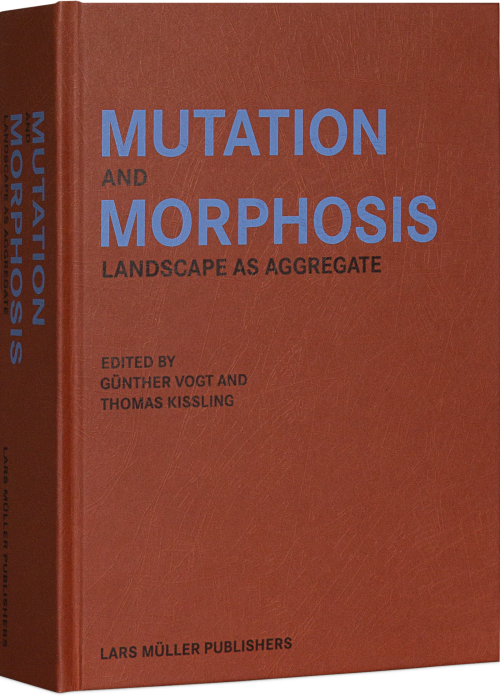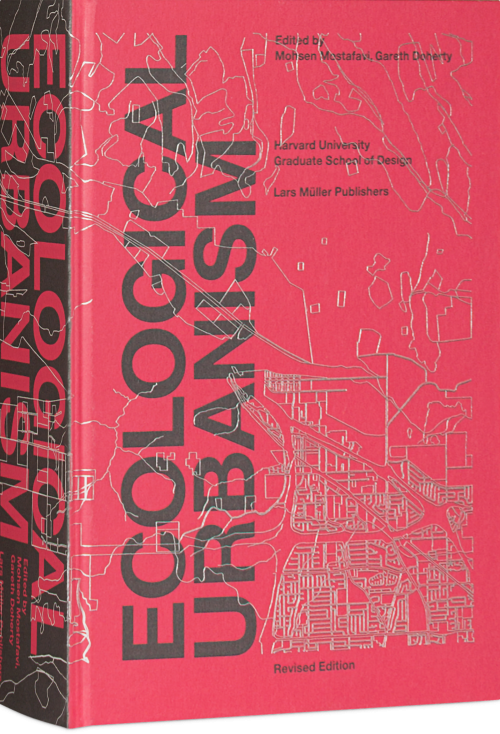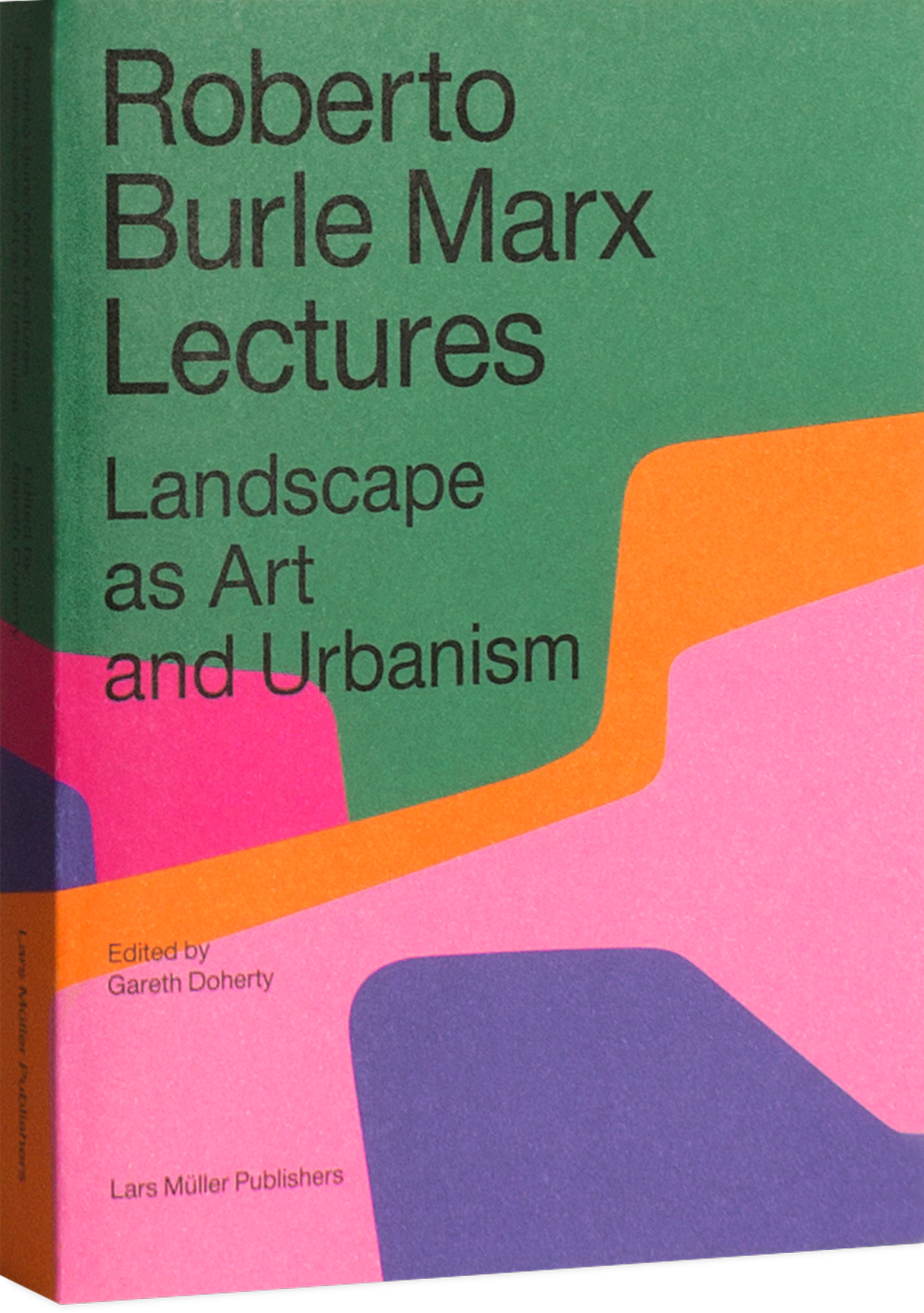
Roberto Burle Marx Lectures
Roberto Burle Marx (1909–1994) remains one of the most important landscape architects in the history of the field. His distinctive and widely acclaimed work has been featured and referenced in numerous sources, yet few of Burle Marx’s own words have been published.
This collection of a dozen of Burle Marx’s lectures, most of which have never before been available in English, fills that void. Delivered on international speaking tours, they address topics such as Concepts in Landscape Composition, Gardens and Ecology and The Problem of Garden Lighting. Their publication sheds light on Burle Marx’s distinctive ethic and aesthetic of landscape, as “the real art of living.”
The lectures paint a picture of Burle Marx not just as a gardener, artist and botanist, but as a landscape architect whose ambition was to bring radical change to cities and society. The lectures are framed by photographs, by Leonardo Finotti, of a selection of Burle Marx’s realized projects.
Roberto Burle Marx (1909–1994) remains one of the most important landscape architects in the history of the field. His distinctive and widely acclaimed work has been featured and referenced in numerous sources, yet few of Burle Marx’s own words have been published.
This collection of a dozen of Burle Marx’s lectures, most of which have never before been available in English, fills that void. Delivered on international speaking tours, they address topics such as Concepts in Landscape Composition, Gardens and Ecology and The Problem of Garden Lighting. Their publication sheds light on Burle Marx’s distinctive ethic and aesthetic of landscape, as “the real art of living.”
The lectures paint a picture of Burle Marx not just as a gardener, artist and botanist, but as a landscape architect whose ambition was to bring radical change to cities and society. The lectures are framed by photographs, by Leonardo Finotti, of a selection of Burle Marx’s realized projects.
Second revised edition
“The lectures of the great Brazilian landscape architect Roberto Burle Marx are finally gathered together and made available to an international readership.”
– Abitare
“an excellent piece of archival scholarship conducted over a long period, and an insightful read”
– Journal of Landscape Architecture
